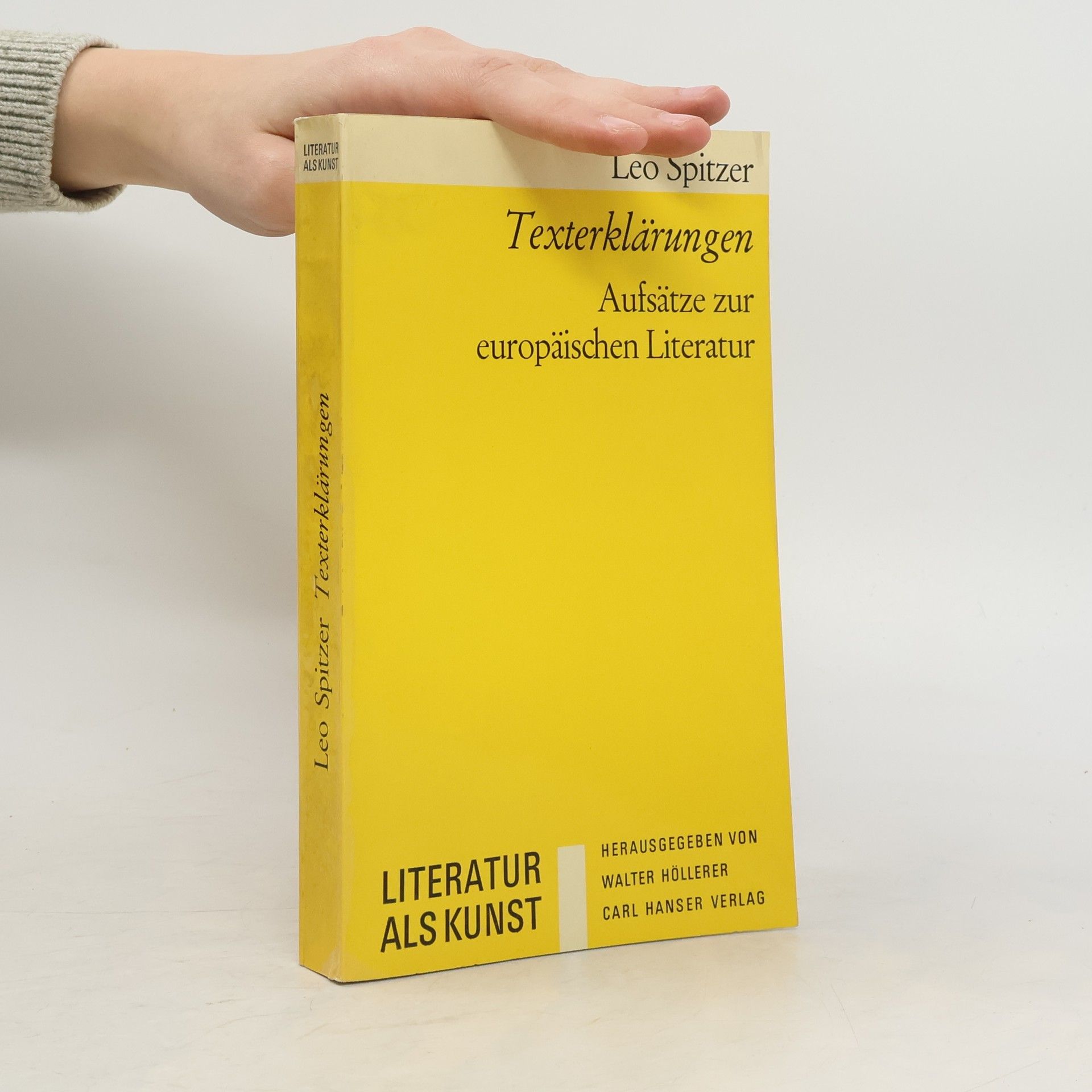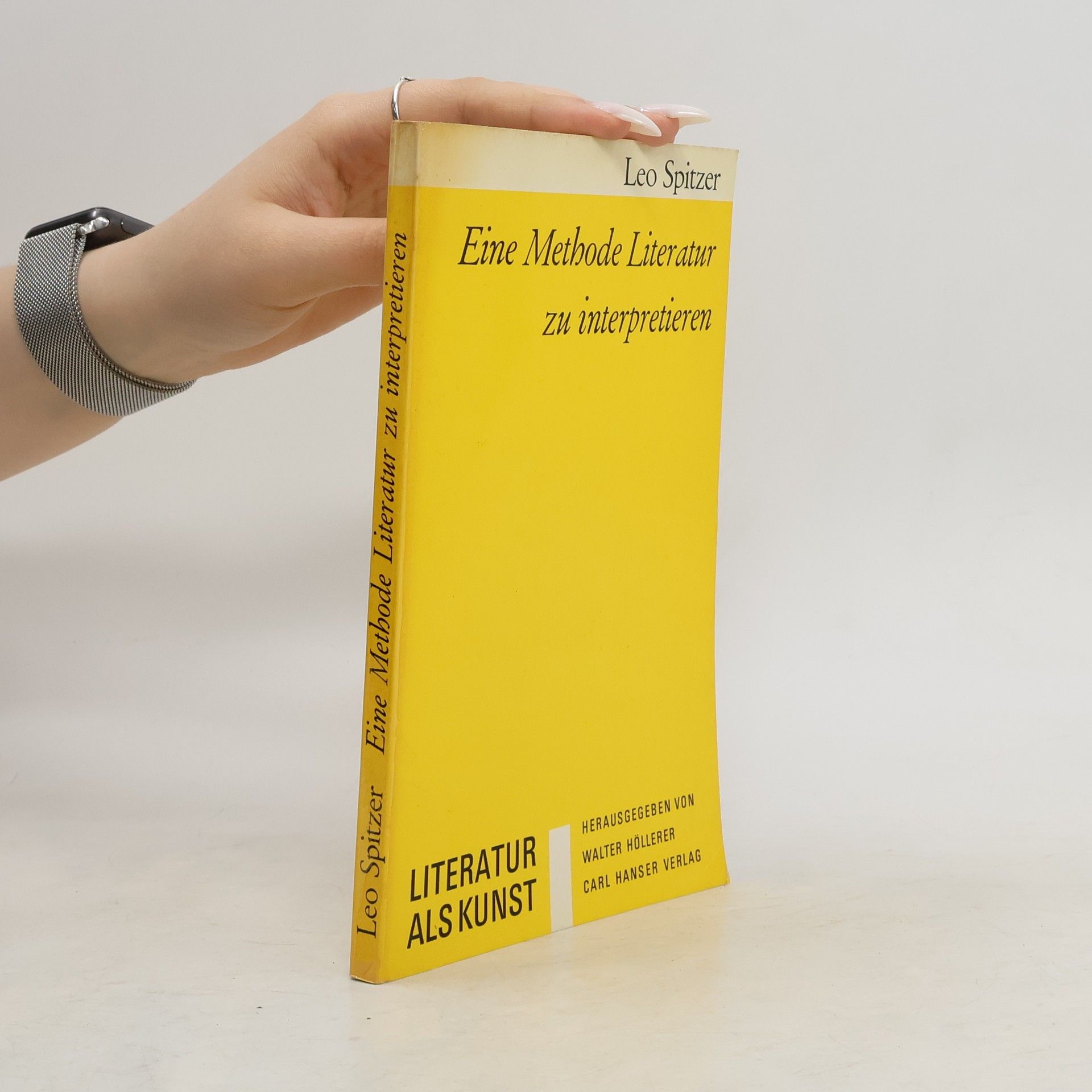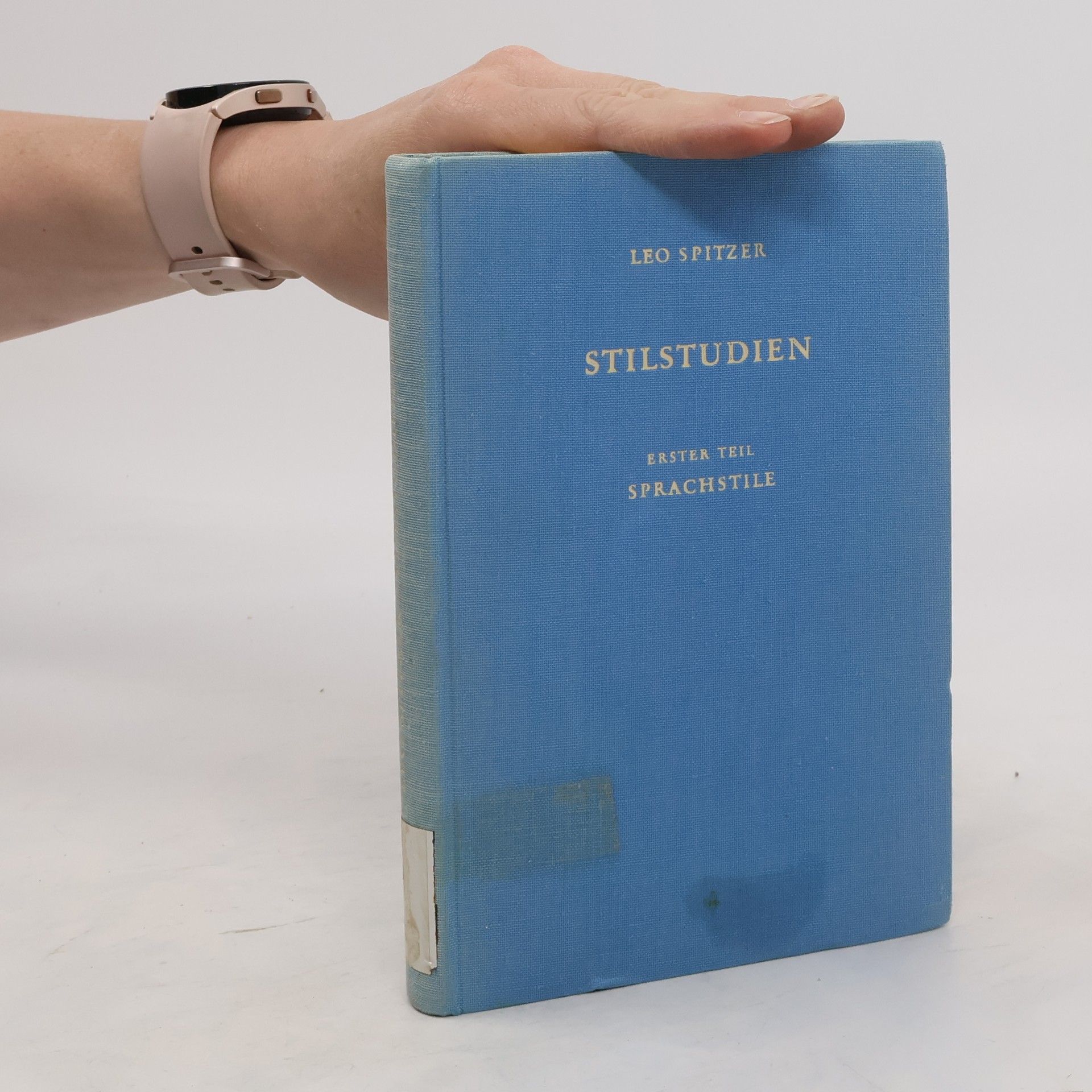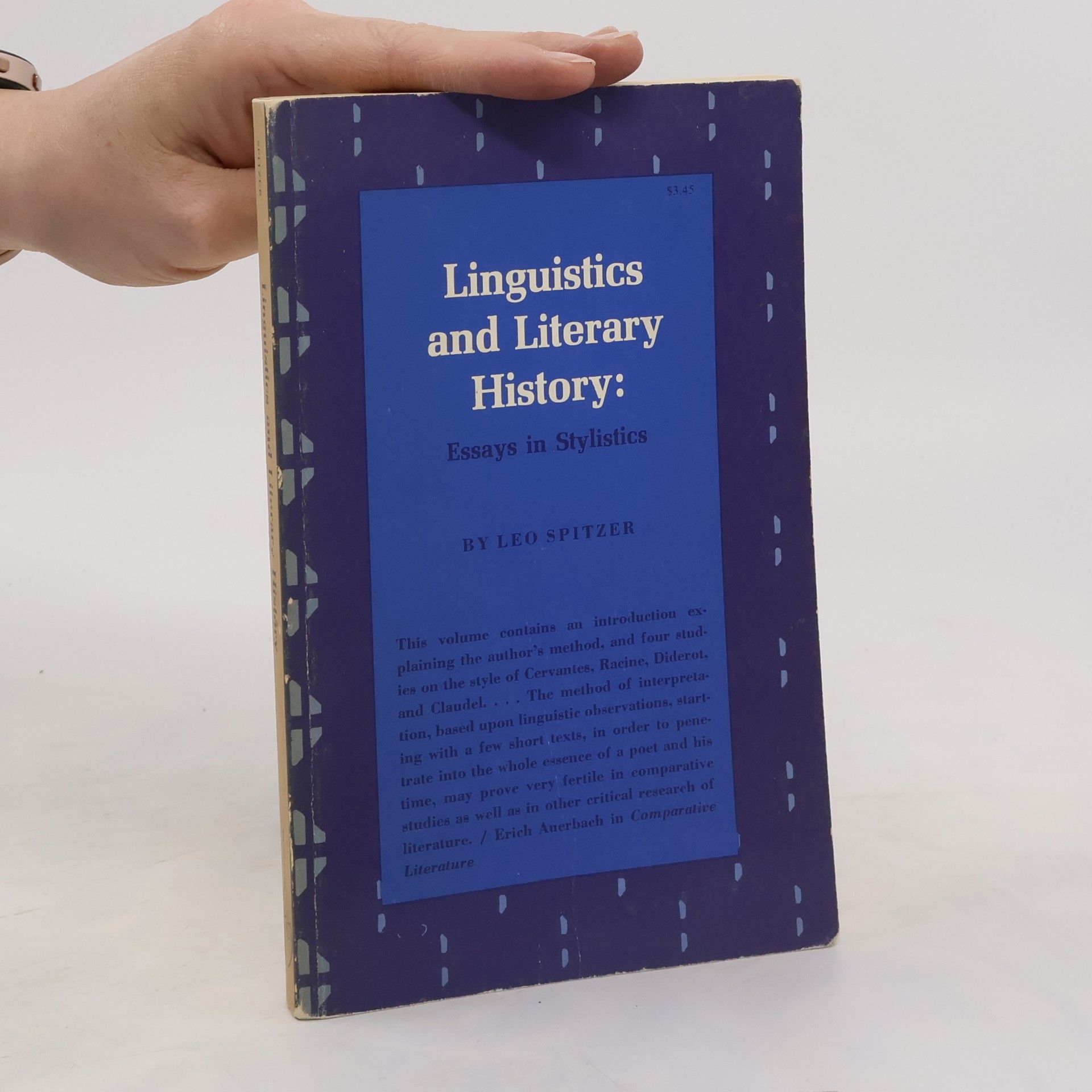Spitzer discusses the method he evolved for bringing together the two disciplines, linguistics and literary history, and examines the work of Cervantes, Racine, Diderot, and Claudel in the light of this theory.Originally published in 1967.The Princeton Legacy Library uses the latest print-on-demand technology to again make available previously out-of-print books from the distinguished backlist of Princeton University Press. These editions preserve the original texts of these important books while presenting them in durable paperback and hardcover editions. The goal of the Princeton Legacy Library is to vastly increase access to the rich scholarly heritage found in the thousands of books published by Princeton University Press since its founding in 1905.
Leo Spitzer Libros
7 de febrero de 1887 – 16 de septiembre de 1960






Stylistické studie z románských literatur
- 605 páginas
- 22 horas de lectura
První český výbor z díla Leo Spitzera (1887–1960), jedné z nejoriginálnějších osobností jazykovědy a literární vědy 20. století. Spolu s velkými romanisty Karlem Vosslerem, Ernstem Robertem Curtiem a Erichem Auerbachem byl představitelem polemické reakce na pozitivistickou filologii a průkopníkem metodologických postupů, které za jazykovými fakty dokážou zahlédnout tvůrčí individuum a jeho osobní styl, za osobním stylem dobovou stylovou tendenci a od ní pak dojít k panoramatickému pohledu na jednotlivé aspekty kulturních dějin.